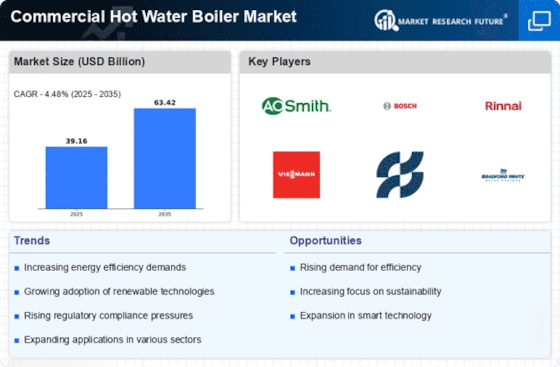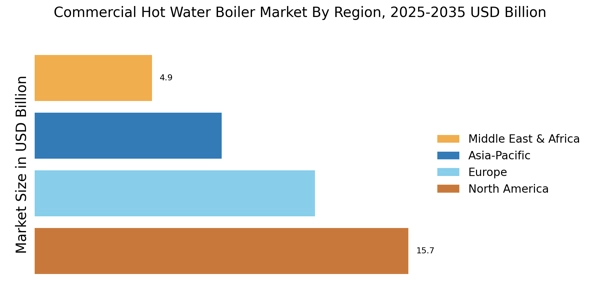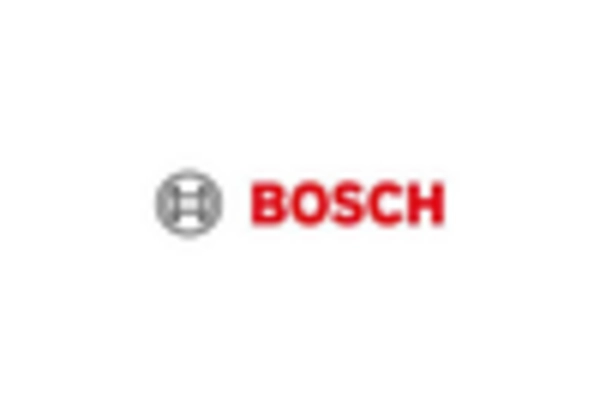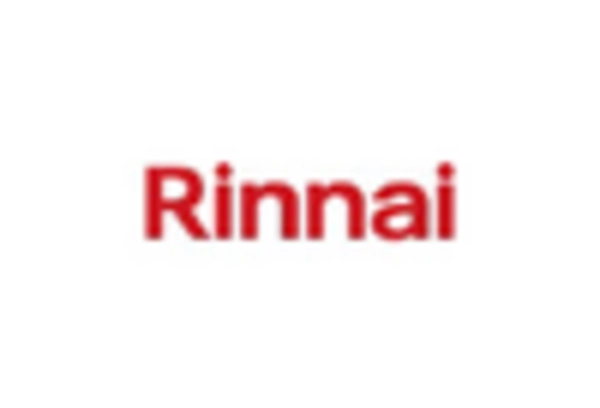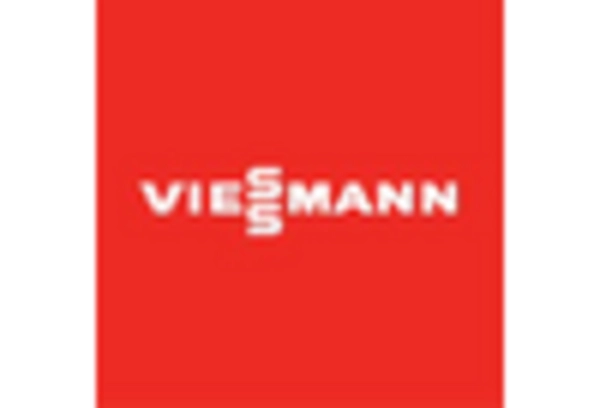Rising Demand for Energy Efficiency
The increasing emphasis on energy efficiency is a pivotal driver for the Commercial Hot Water Boiler Market. As businesses seek to reduce operational costs and minimize their carbon footprint, energy-efficient boilers are becoming essential. According to recent data, energy-efficient models can reduce energy consumption by up to 30%, which translates into significant savings over time. This trend is particularly pronounced in sectors such as hospitality and healthcare, where hot water usage is substantial. Consequently, manufacturers are innovating to produce boilers that not only meet but exceed energy efficiency standards, thereby enhancing their market appeal. The shift towards energy-efficient solutions is likely to continue, as both consumers and regulatory bodies advocate for sustainable practices.
Technological Advancements in Boiler Design
Technological advancements are reshaping the Commercial Hot Water Boiler Market, leading to the development of more efficient and user-friendly systems. Innovations such as condensing technology and modular designs allow for better heat recovery and flexibility in installation. For instance, condensing boilers can achieve efficiencies of over 90%, making them a preferred choice for many commercial applications. Furthermore, the integration of smart technology enables real-time monitoring and control, optimizing performance and reducing energy waste. As businesses increasingly prioritize operational efficiency, the demand for technologically advanced boilers is expected to rise, driving growth in the market. This trend suggests a shift towards more sophisticated heating solutions that align with modern energy management practices.
Increased Focus on Sustainability Initiatives
The increased focus on sustainability initiatives is driving change within the Commercial Hot Water Boiler Market. Businesses are increasingly adopting sustainable practices to meet consumer expectations and regulatory requirements. This shift is evident in the growing preference for boilers that utilize renewable energy sources, such as solar thermal systems and biomass boilers. The market for these sustainable options is expanding, as organizations aim to reduce their environmental impact. Furthermore, sustainability initiatives often lead to long-term cost savings, making them attractive to businesses. As awareness of environmental issues continues to rise, the demand for sustainable hot water solutions is expected to grow, influencing manufacturers to innovate and adapt their product offerings accordingly.
Growth in Construction and Renovation Activities
The growth in construction and renovation activities is a crucial driver for the Commercial Hot Water Boiler Market. As new commercial buildings are constructed and existing ones are renovated, the demand for efficient hot water systems rises. Data indicates that the construction sector is experiencing a resurgence, with significant investments in infrastructure and commercial real estate. This trend is particularly evident in sectors such as education, healthcare, and hospitality, where reliable hot water systems are essential. Consequently, the demand for commercial hot water boilers is likely to increase, as builders and developers seek to incorporate modern, energy-efficient solutions into their projects. This growth in construction activities presents a substantial opportunity for manufacturers to expand their market share.
Regulatory Pressures and Compliance Requirements
Regulatory pressures are a significant driver in the Commercial Hot Water Boiler Market, as governments worldwide implement stricter emissions standards and energy efficiency regulations. Compliance with these regulations is not merely a legal obligation but also a competitive advantage. For example, the introduction of energy performance standards has compelled manufacturers to innovate and produce cleaner, more efficient boilers. This regulatory landscape is likely to evolve, with more stringent requirements anticipated in the coming years. Companies that proactively adapt to these changes can enhance their market position and appeal to environmentally conscious consumers. Thus, the need for compliance is expected to drive demand for advanced boiler technologies that meet or exceed regulatory expectations.


